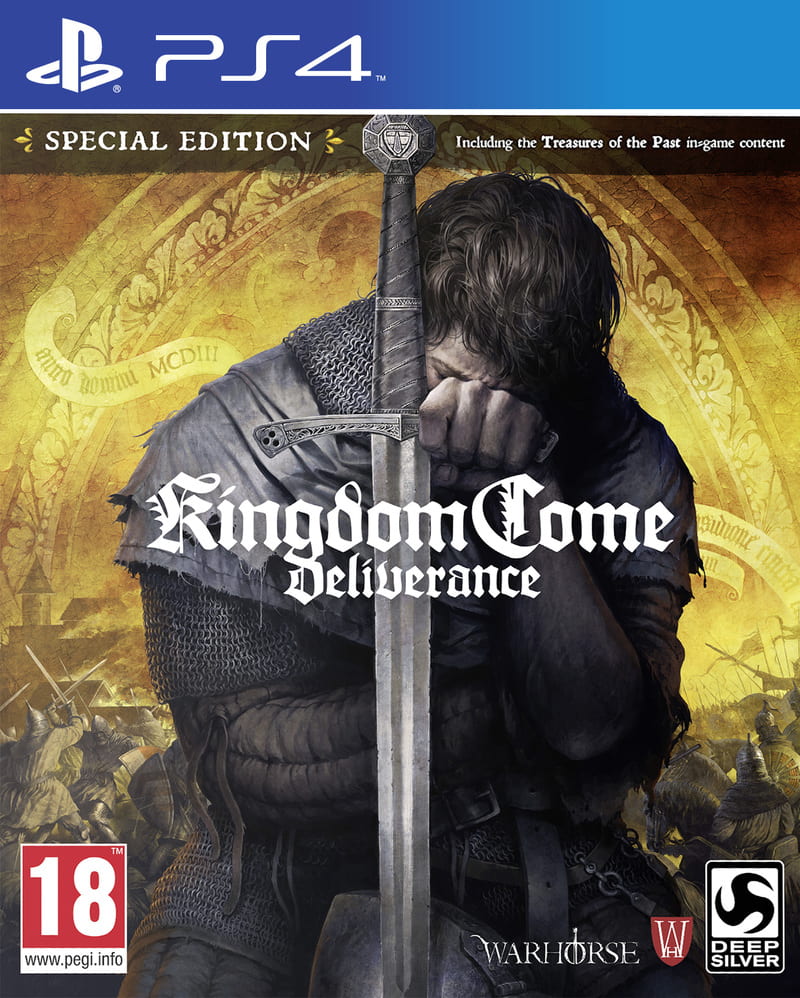David Perez
Central Bureau Chief
Kingdom Come Deliverance (KCD) is the game with which the Czech developer Warhorse Studios debuts in the video game market.
After a couple years of development, a good portion of which was crowdfunded by Kickstarter, Warhorse launches KCD on PS4, Xbox One and PC with the purpose of delivering an essentially realistic medieval game; a goal they achieve, but not without some issues.
The game is settled in the medieval Kingdom of Bohemia (corresponding to current Czech Republic), which at the time, was a realm of the Holy Roman Empire.
In 1378, after the death of Charles IV, King of Bohemia and Holy Roman Emperor, he is succeeded in the throne by his brother Wenceslaus, who becomes a decadent and poor ruler. His half-brother Sigismund of Luxembourg, King of Hungary and Croatia, seizes the chance to kidnap King Wenceslaus and taking him prisoner in 1402 with the aid of a Curman Tatar army.
After a brief introduction, we are put in the shoes of Henry, the son of a blacksmith, who lives in the town of Skalitz.
He lives a quiet, carefree life in the small Czech village until Sigismund’s Curmans attack the town and slaughter everyone in sight, including Henry’s parents. After running away and escaping, Henry swears revenge against the general who attacked the village, putting himself at the service of Lord Radzig.
During this “prologue” we are able to see the beautiful game landscape, which is guaranteed to charm the player at the first glance.
The towns and the landscapes look carefully handcrafted, like a painting and helps with immersion. The folk-influenced soundtracks also gives a truly medieval vibe. It’s a game that invites you to just explore and get lost once in a while.
As mentioned before, Warhorse developed KCD with the intention of being as realistic as possible, and they took it as seriously as possible.
Our character is not a powerful warrior like Geralt of Rivia from The Witcher saga, but just a frail medieval peasant. There are no spells, no magic potions and no innate fighting experience.
We can feel it right in the beginning where we are fleeing from Skalitz and we have the choice of either fighting the Cumans, which is guaranteed to get us killed or running, which allows us to live another day. Funny thing is, the game never tells you that the only way to survive is to run, you have to discover that by yourself.
An interesting feature about the game, and that may discourage some people, is that it treats you like an adult.
There are shining paths or arrows on the landscape pointing your goal, the only way of knowing what to do is literally watching your map or reviewing your mission on the codex.
The mission system also gives you freedom on how to do execute the missions; you can use whatever method as long as you fulfill the objectives.
In Skilitz, for example, you need to collect a debt from a drunk, and he refuses to pay so you have to choice of either robbing his house to steal valuable things from him or beating him up with the help of your friends after you help them to take revenge on a guy who commited the great crime of “speaking ill” of your King. This system takes the nonlinearity to a new level.
Along the game you will always have access to the codex, which is a book that briefs you information about the “current events” of Bohemia, from how feudalism works to the controversy of the two Popes in Rome and Avignon.
Although it’s very helpful to understand things and a gift for history geeks, it may spoil the surprise of discovering things about the Bohemian society as you play the game.
The battle system is a little clunky and hard to take the hold of. Instead of being a fast paced sword fighting like
The Witcher or Dark Souls, it’s a slow, coordination-based mechanic where you need to be careful where you aim.
It’s quite hard to actually master it, which is coherent if you remember you are just a boy who, until then, never got hold a sword. There are instances where, instead of fighting, you need to find your way with words.
In the game, being able to talk your way out of problems depends on how good your oratory level is or your strength is.
Overall, KCD “delivers” what it promises, a beautiful handcrafted representation of medieval Czech Bohemia.
It’s a game ideal for either history geeks or very, very, patient players who are willing to overlook the hard learning curve or the visual bugs (which have been fixed with patches) to enjoy a game that succeeds in doing something different than we are used to.
Photo credit: virginmegastore.com
